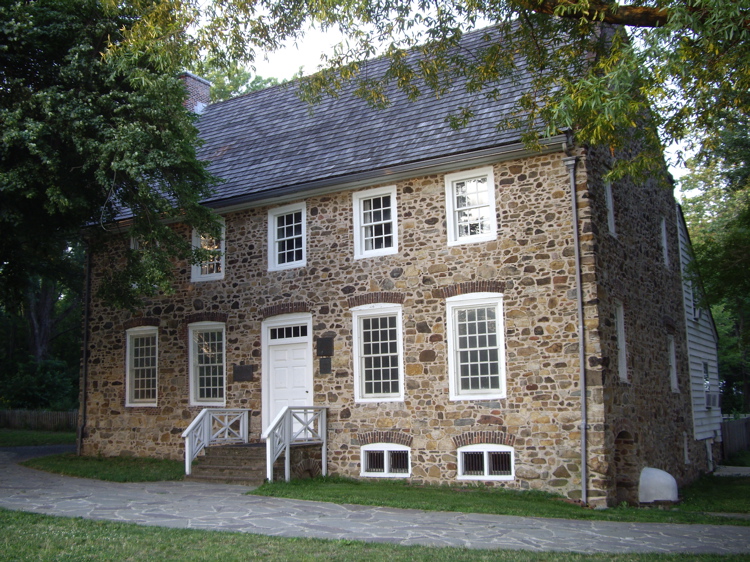
Probably the most important event is September 11, 1609, when Henry Hudson began his voyage up the Hudson River. While he didn't find what he was looking for (a northwest passage), his exploration led to European migration and, thus, to the founding of New York City. We'll write more about Hudson and his momentous voyage in later posts; this week, we thought we'd concentrate on 9/11/1776 and the Staten Island Peace Conference.
In late August 1776, the first pitched battle of the war--then known as the Battle of Long Island and now mostly known as the Battle of Brooklyn--had taken place. It was a decisive victory for the British under General William Howe. Indeed, if Howe hadn't held back, it could have been a war-ending victory for the British troops. However, the British didn't press their advantage and George Washington was able to evacuate thousands of American troops to Manhattan under the cover of thick fog.
Howe's brother, Admiral Lord Richard Howe, was in charge of the British navy and it was put to him to approach the rebellious American about a peace accord. The British wanted to give the Americans one last chance to come back into the fold as loyal colonists before, presumably, taking harsher measures.
The conference was held on the south shore of Staten Island in a house owned by Colonel Christopher Billopp, a Loyalist. The Americans sent a delegation of three from Philadelphia: Edward Rutledge from South Carolina, the youngest signer of the Declaration of Independence; John Adams of Massachusetts; and elder statesman Benjamin Franklin.

The meeting lasted less than three hours and accomplished nothing. Howe was shocked that the three Americans rejected out of hand the idea of rejoining the mother country. More to the point, he had no authority to negotiate. For Adams and Rutledge, the diplomatic show must have seemed a waste of time. When Howe told Adams he thought of him as a "gentleman of influence," Adams retorted that Howe could "consider me in what light you please... except as a British subject."
The Billopp house, today known as the Conference House, is open April through mid-December on Fridays, Saturdays, and Sundays. More information about visiting can be found at http://www.theconferencehouse.org.
(More information on Henry Hudson and the Battle Brooklyn can be found in our forthcoming book, Inside the Apple.)

No comments:
Post a Comment